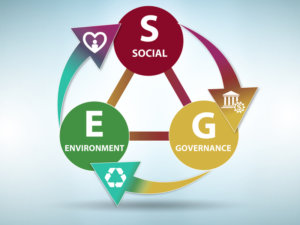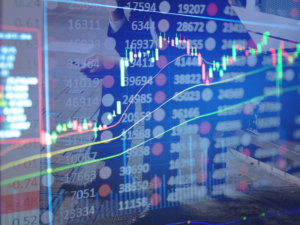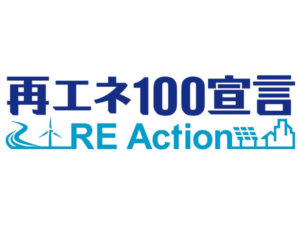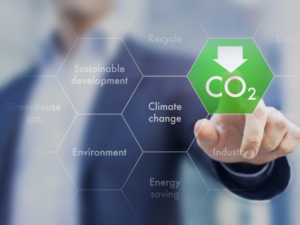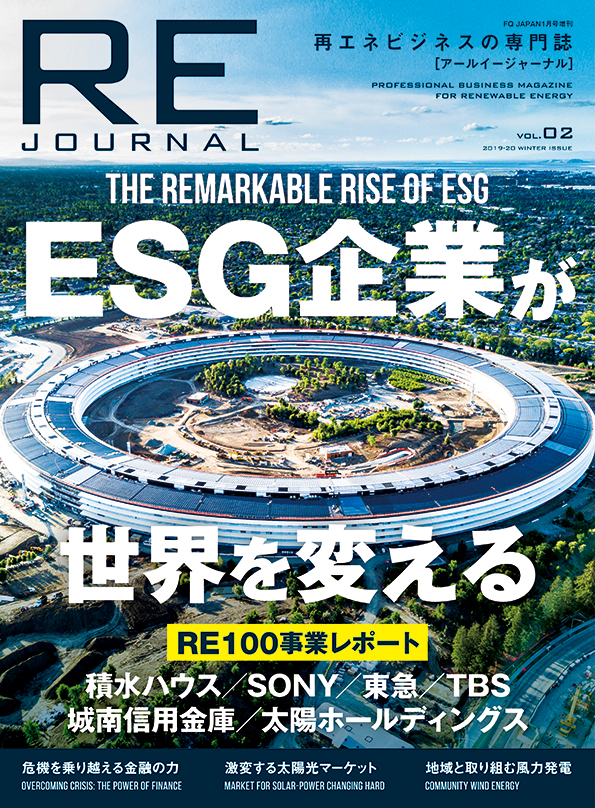ビジネスシーンは再エネ100%へ! 電力需要家が牽引する脱炭素社会
2020/08/03
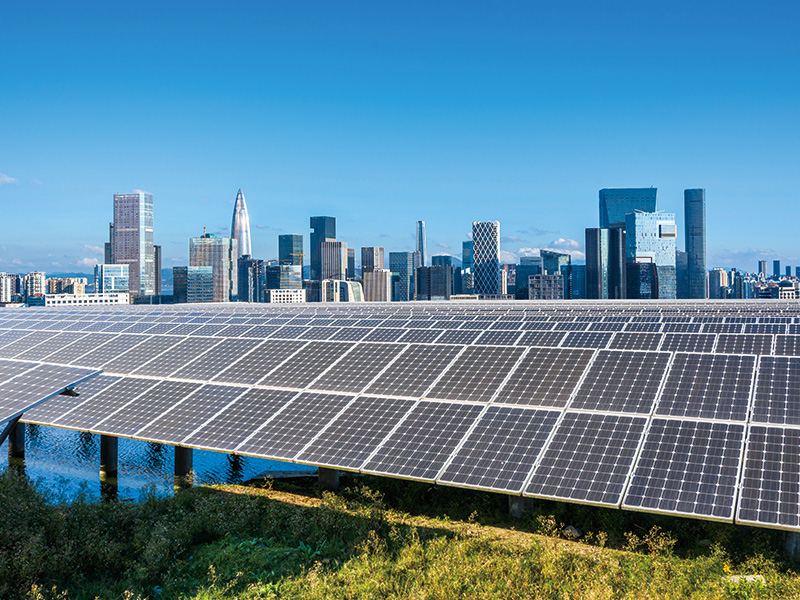
再生可能エネルギー導入拡大に向けて、電力需要家が新たな主役に躍り出た。経済合理性に導かれ、いま企業が再エネを求めている。その動きはビジネスを変え、脱炭素社会への移行を加速する。RE100 ──その真実を解く。
国内外の大手企業216社
12月2日、「RE(アールイー)100」の2019年版年次報告書が、クライメイトグループ(The Climate Group)より発表された。同報告書によると、加盟企業数は全世界で216社。昨年版発表時(2018年11月15日)の155社から約4割増加した。なかでも日本企業は13社から29社に大きく増え、存在感を強めている。
REとは、Renewable Energy(再生可能エネルギー)の略。RE100は、自らの事業活動で使用する電力を100%再生可能エネルギーにすることを目指す企業の連合体(国際イニシアチブ)だ。事業活動によって生じる環境負荷を低減させることを目的に2014年に発足。気候変動対策を推進するイギリスの国際NGOクライメイトグループと、企業の環境戦略等を評価・分析する国際非営利団体CDPが共同で運営する。
欧米企業のRE100への反応は早かった。アップル、グーグル、ナイキ、ネスレ、イケア、BMWなど、名だたるグローバル企業が続々と加盟した。
一方で、日本企業の動き出しは遅かった。しかし、2017年4月にリコーが初めて加盟すると、同年中に積水ハウス、アスクルが続き、2019年秋以降も旭化成ホームズ、髙島屋、フジクラ、東急、ヒューリック、LIXIL、安藤ハザマと立て続けに加わった。いまや日本だけで29社にのぼり、アメリカ、イギリスに次いで世界3位の加盟企業数となっている。
なぜ、いまRE100に取り組むのか。その理由は様々だが、それが決して一過性のブームでないことは明らかだ。また、環境に優しい企業であることをアピールするためだけのイメージ戦略でもない。そこには、企業価値の向上、企業の持続可能性にも直結するシビアな経営判断がある。
日本のRE100加盟企業(※加盟発表年月)
製造
リコー(2017年4月)/富士通(2018年7月)/ソニー(2018年9月)
コニカミノルタ(2019年2月)/富士フイルムホールディングス(2019年4月)
パナソニック(2019年8月)/フジクラ(2019年10月)/LIXIL(2019年11月)
建設・不動産
積水ハウス(2017年10月)/大和ハウス(2018年3月)/戸田建設(2019年1月)
大東建託(2019年2月)/東急不動産(2019年4月)/旭化成ホームズ(2019年9月)
ヒューリック(2019年11月)/安藤ハザマ(2019年12月)
小売
アスクル(2017年11月)/イオン(2018年3月)/丸井グループ(2018年7月)
コープさっぽろ(2018年10月)/髙島屋(2019年9月)
飲食
ワタミ(2018年3月)
金融・保険
城南信用金庫(2018年5月)/アセットマネジメントOne(2019年7月)
第一生命保険(2019年8月)
リース
芙蓉総合リース(2018年9月)
リサイクル
エンビプロ・ホールディングス(2018年7月)
シンクタンク
野村総合研究所(2019年2月)
運輸
東急(2019年10月)
RE100に加盟する理由
パリ協定(2015年12月、COP21で採択)によって、世界の気温上昇を産業革命前の2℃未満に抑えることが定められた。加えて、1.5度未満という目標も規定された。あわせて21世紀後半までに温室効果ガス排出量を実質0にする方向性も打ち出された。これに対応していくことは、国だけでなく、企業にとっても大きな課題となっている。RE100は、まずそこに結びつく。日本においてRE100の窓口を務める日本気候リーダーズ・パートナーシップ(JCLP)は、次のように述べている。
「気温上昇を2℃未満に抑制することを踏まえると、保有している化石燃料資産の多くが不良在庫化(座礁資産化)するリスクがあるとして、投資家らがポートフォリオの見直しを始めています。また、炭素価格付け政策等により、市場における製品・サービスの競争力に新たな軸が加わるほか、消費者サイドでも企業の気候変動対策への関心が高まっています」。
再生可能エネルギーの導入拡大は、温室効果ガスの排出を減らし、気温上昇を抑制する。RE100への取り組みは、気候変動対策(脱炭素化)そのものであり、企業の競争力を高めることは間違いない。RE100に加盟していることは、ESG投資の観点からも評価され、ファイナンスに好影響を及ぼすことにもなってくる。
日本においては、環境省が2018年6月より、公的機関としては世界で初めてアンバサダーという形でRE100に参画。官舎や施設での再エネ導入に率先して取り組むとしている。経済産業省も2019年3月、「国際的な気候変動イニシアティブへの対応に関するガイダンス」を策定し、RE100をサポートする姿勢を見せている。
対象企業は10GWh以上
RE100に加盟するには、どうしたら良いのか。申請先は、前述のJCPL。申請にあたっては、いくつかの要件を満たす必要がある。最大のポイントは、期限を切った再エネ100%目標を設定し、公表すること。期限は遅くとも2050年までとなっており、例えば「2030年60%」など具体的な中間目標を設定することも推奨されている。また、「日本の再エネ普及目標の向上」と「企業が直接再エネを利用できる透明性ある市場の整備」に関する政策関与と公的な要請を積極的に行うことも求められる。
参加対象となり得るのは、下記条件のうち、1つ以上に該当する企業だ。
①グローバルまたは国内で認知度・信頼度が高い。
②主要な多国籍企業(フォーチュン1000またはそれに相当)。
③電力消費量が年間10GWh以上(日本企業の場合)。
④RE100の目的に寄与する何らかの特徴と影響力を有する。
なお、以上4件のうち、とくに電力消費量が10GWh以上であることが重視されている。
社会を動かす政策提言
これまで日本では、FIT制度(再生可能エネルギーの価格買取制度)を背景に、発電事業者主導で再エネの普及が進んできた。FIT制度の抜本的な見直しが進むむなか、企業という電力需要家サイドから、再エネを求める動きが出てきていることには大きな意義がある。加盟企業はいずれも実力ある優良企業であり、その連合体であるRE100は、国や社会に対しても相応の影響力を発揮できるはずだ。
日本のRE100加盟企業は2019年5月、「RE100メンバー会」を立ち上げ、6月に政策提言を発表した。日本の電源構成において「2030年に再エネ比率50%」の達成を目指し、政策を総動員することを求める、という内容だ。加盟企業は、たんに電力を再エネに転換するだけでなく、経済合理性を追求し他の電源よりも安く調達すること、競争力を強化することを目指している。そして、そのための取り組みが、日本全体の再エネ比率を高め、気候変動を抑えることに結びつく。再エネ導入拡大の新しい牽引役として、RE100への期待は大きい。
再エネ100%を目指す需要家からの提言(要旨)
日本の電源構成における「2030年に再エネ比率50%」の達成を目指し、政策を総動員することを求める。
1 再エネの社会的便益の適切な評価と、それに基づく政策立案を求める。
●日本の電力システムを考える上で、再エネの社会的便益を適切に評価するとともに、国全体でそれらを共有することを求める。
2 日本の電源構成について、「2030年に再エネ比率50%」を掲げることを求める。
●国が明確かつ意欲的な方向性を示すことが、迅速かつ大規模な再エネ普及の前提になると考える。
3 他の電源に対して競争力を有する再エネを実現する環境整備を求める。
●2030 年における再エネ比率50%を実現可能とする送配電網整備を求める。
●導入ポテンシャルの大きい再エネ(風力発電等)の開発リスクを低減するために、中長期的視点に立った制度支援を求める。
●需要家と発電事業者の直接電力購入契約(PPA)等、再エネの調達手段の多様化を求める。
A business setting undergo change into 100% renewable power Declarbonized society driven consumers
Led by economic rationality, companies seeking renewable power jump to the role of expanding introduction of that. That will change
what business should be and accelerate the transition to a decarbonized society. RE100 the truth will be solved.
Text: Kiminori Hiromachi
216 major domestic and foreign companies
On December 2, the Climate Group released the “ RE100” annual report 2019. According to the report, 216 companies has already participated in it. This is an increase of about 40% compared to the date last year,155companies. In particular, the number of Japanese companies has greatly increased from 13 to 29, strengthening Japanese companies their presence. RE stands for Renewable Energy. RE100 is a federation of companies (international initiative) that aims to make the electricity used in its business activities 100% renewable energy. It was established in 2014 for reducing the environmental impact caused by business activities. It is operated jointly by the UK’s international NGO, The Climate Group, which promotes climate change countermeasures, and the international NPO, CDP, which evaluates and analyzes corporate environmental strategies. European and American companies responded quickly to RE100. Famous global companies such as Apple, Google, Nike, Nestlé, IKEA, and BMW joined one after another. On the other hand, the start of Japanese companies was slow. However, when Ricoh participated for the first time in April 2017, Sekisui House and ASKUL did in the same year. After the fall of 2019, Asahi Kasei Homes, Takashimaya, Fujikura, Tokyu Hulic, LIXIL, and Ando Hazama participated in succession. Today, 29 Japanese companies participated, the third largest member in the world after the United States and the United Kingdom. Why are companies tackling RE100 now? There are various reasons, but it is clearly not a temporary boom. Nor is it just a strategy for their impression to appeal to be a company contributing to the environment. It is the severe management decision that directly improves corporate value and sustainability.
Reasons for joining RE100
The Paris Agreement (adopted by COP21 in December 2015) stipulated that global temperature rise should be kept below 2 ° C before the Industrial Revolution. In addition, a target of less than 1.5 degrees was also defined. At the same time, by half of the 21st century, it set a direction to reduce greenhouse gas emissions to zero. Dealing with them is a major challenge not only for the country but also for companies. RE100 is related to them first. The Japan Climate Leaders Partnership (JCLP), which serves as the window of RE100 in Japan, stated: If the temperature rise is deterred below 2°C, most of fossil fuel assets investors own would get started. So, many investors have begun to review the portfolio. Moreover, the carbon pricing policy has added a new axis to the competitiveness of products and services in the market, and consumers are also increasingly interested in climate change countermeasures.” Expanding the introduction of renewable energy reduces greenhouse gas emission and suppress temperature rise. Efforts to RE100 are climate change countermeasures (decarbonization) itself, and there is no doubt that it will enhance the competitiveness of companies. Being a member of RE100 will be also evaluated from the viewpoint of ESG investment and have a positive impact on finance. In Japan, the Ministry of Environment participated in RE100 in June 2018 as the first ambassador from a public institution. The Ministry of Environment is taking the initiative in introducing renewable energy in government buildings and facilities. In March 2019, the Ministry of Economy, Trade and Industry established “Guidance on Response to International Climate Change Initiatives” and shows the attitude to support RE100.
Target is a company annurally consuming electricity 10GWh
or more
What is required to participate RE100? The application destination is JCPL. There are several requirements that must be met when applying. The biggest point is to set and announce the 100% renewable energy target with fixed period. The deadline is 2050 at the latest, and it is also recommended to set a specific intermediate target such as “60% by 2030”. Moreover, it is also necessary to actively make policy involvement and public requests regarding “improvement of Japan’s renewable energy diffusion target” and “development of transparent markets where companies can directly use renewable energy”. Eligible participants must meet one or more of the conditions listed on the left. (1) Recognition and reliability globally and domestically high. (2) Major multinational companies (Fortune 1000 or equivalent). (3) Electricity consumption is 10 GWh or more per year (for Japanese companies). It has some features and influences that contribute to the purpose of RE100. Of the above four cases, the electricity consumption is especially important to be more than 10 GWh.
取材・文/廣町公則
RE JOURNAL vol.2(2019-20年冬号)より転載






